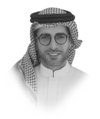Many reasons for optimism about Syria and Lebanon

https://arab.news/c8ycg
They say all good things come to an end, and surely the same argument applies to bad things too. At least this is what we have noticed recently in both Syria and Lebanon.
In December, Syrians got rid of the brutal Assad regime, which governed with terror, torture, and tyranny for over five decades. The regime was replaced by a transitional government led by Ahmad Al-Sharaa, previously known as Abu Mohammed Al-Golani, leader of Hayat Tahrir Al-Sham.
Yesterday, Lebanon — another failed Arab state — elected a president, Gen. Joseph Aoun, after a two-year vacuum, its first freely elected head of state since 1990, with no influence or pressure from the Syrian regime or from Hezbollah.
Yes, it could be argued that the rise of both Al-Sharaa and Aoun was a direct result of a weakened Iranian proxy influence in the Levant. However, a power vacuum does not always guarantee the rise of a better alternative. In fact, in many cases throughout history, it has brought chaos and even worse regimes.
It is too early to judge the new leaders of Syria and Lebanon by their actions. But at least when it comes to their words, one cannot help but raise one’s hat to the truly refreshing pledges and reassuring promises made by both Al-Sharaa and Aoun.
Al-Sharaa, who many feared would turn Syria into an ideological Islamist state given his background, has taken everyone by surprise by pledging inclusivity, guaranteeing minority rights, and saying that the West has nothing to fear from Syria. He even went on to say that the country is in no condition to wage wars and wants to focus on reconstruction and rebuilding.
In the Middle East, we — rightly — believe that actions speak louder than words. However, for now, the words from both Al-Sharaa and Aoun are exactly what we have waited a long time to hear.
Faisal J. Abbas | Editor-in-Chief
Even though Al-Sharaa technically has absolute power, he was adamant to repeat during several media interviews that he would leave legislation to the legislators, and called for an urgent national dialogue to ensure a new constitution is written.
Not too long after that, Aoun was elected as president. Not wasting any time, he immediately made his mandate clear: “Lebanon will no longer be a country for mafias, drug trafficking, or money laundering.” A reassuring message to Gulf and Arab countries.
He also made it clear that he would not negotiate on Lebanese sovereignty. Only the state will bear arms and only the army has the right to protect Lebanese borders, and he will stand up to any Israeli intrusions. This is a direct message to any militants or so-called resistance groups that decide to take the law into their own hands.
For the Lebanese themselves, they heard exactly what they needed to hear: “If one of us falls, we all fall. There will be no immunity for criminals or corrupt individuals. No interference in the judiciary.”
Perhaps in the Middle East, we — rightly — believe that actions speak louder than words, considering we have been disappointed many times in the past. However, nobody can deny that, for now, the words from both Al-Sharaa and Aoun are exactly what we have waited a long time to hear.
Their actions must follow suit, but if both leaders are sincere and committed to their vision, it is very clear that they will get full support from Riyadh and beyond.
What is also reassuring is that in both cases, Syria and Lebanon, it is virtually impossible for what comes next to be worse than what was. For now, we can rejoice that the leaders of both countries are at least sounding like true statesmen, and for that they deserve for us to wish them the best of luck.
- Faisal J. Abbas is the editor in chief of Arab News. X: @FaisalJAbbas









































